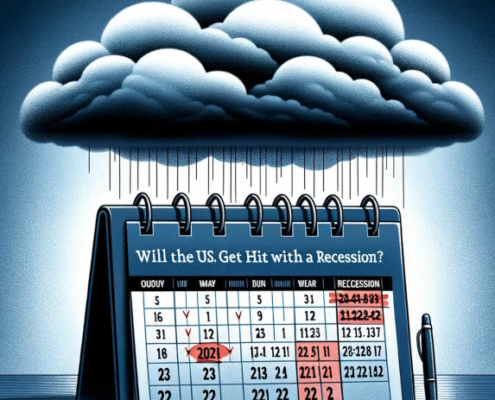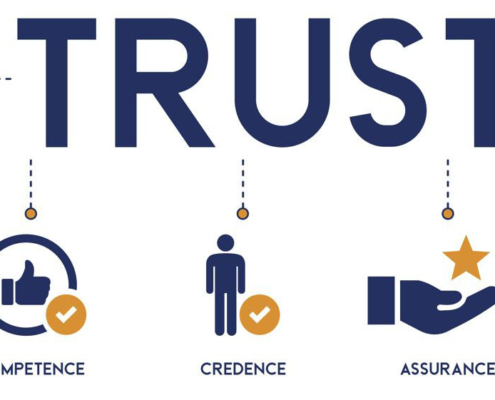How To Start a Coffee Truck Business
This article discusses all the points you should consider to start a successful coffee truck business.
By Brad Nakase, Attorney
Email | Call (888) 600-8654
Is owning a coffee truck profitable?
In the modern business environment, there are many great reasons to create a coffee truck business, largely due to the current street vending trend in cities and towns. Also, state and local leaders are realizing the need to revitalize public parks public spaces and streets for pedestrians. Coffee trucks are a great way for cities to achieve their goal of encouraging local business safety, activity, and commerce. One may even be able to see this transformation in their own town. However, what is good for towns and cities of all sizes is good for the owners of coffee trucks.
Owning a coffee truck business may be more appealing than opening up a traditional brick-and-mortar coffee shop due to flexibility, mobility, as well as lower costs. There are a few different methods by which an entrepreneur may start a coffee shop business. Creating a mobile coffee business is a fantastic, inexpensive concept that offers significant profits as well as other benefits. It is overall a much cheaper endeavor than running a physical coffee shop location.
In this article, our business attorney in Los Angeles will go over the steps involved in opening a coffee truck business, which has its own unique difficulties. Before getting into the process, it is useful to go over the various expenses involved in opening a coffee truck business.
What is the cost of starting a coffee truck business?
There are several factors that influence the cost of opening a coffee truck business. For instance, there is the expense of building or renting the structure, providing power, installing equipment, and buying inventory. These expenses will depend on the space available, the type of service one wishes to offer, as well as the preferred menu.
Due to the above factors, it is easy to have a wide range of startup values. After all, expenses add up. That said, an individual can make a rough estimate of what a coffee truck will cost. This number will range anywhere between $10,000 to $100,000. The average coffee truck, without equipment included, will set an entrepreneur back about 35,000 to $60,000.
However, this will depend on the particular situation. For instance, if an individual orders a specially made coffee truck with unique features, he or she may end up spending around 100,000 to $155,000. Alternatively, an individual may choose to buy a used coffee truck after its original owner retires moves or changes businesses. This would be a great deal!
The bottom line is that an entrepreneur should be prepared to spend a lot of money. To establish a budget for a coffee truck startup, an entrepreneur should be sure to write everything down in a business plan. This business plan will help the individual explore their ideas and concepts and eventually implement them.
However, to write a useful business plan, an individual needs to properly prepare. Before getting started, he or she needs to have the relevant knowledge and a conception of what is needed to open a coffee business.
Is a coffee shop truck business profitable?
Indeed, a coffee truck business can generate significant profits. As well as lower operational costs and startup costs, there are plenty of non-financial benefits that come with owning and running one’s own coffee truck business. Some of these non-economic benefits include flexibility and lifestyle.
However, getting started takes a lot of work.
While a coffee truck business does not have as many financial barriers as a traditional coffee shop, an entrepreneur will still need a certain amount of money to invest in their startup. There is always the danger that a new entrepreneur may spend more than his wise without the proper budgeting and planning. The best method to save money to invest in a coffee truck startup business is to plan and research the entire process of opening the business.
Let’s take a look at the annual revenue of different types of mobile coffee businesses. Again, these are only averages. The owner of a mobile coffee kiosk can expect to make between $50,000 to $80,000 each year. The owner of a small coffee truck can expect to make between 60,000 to $100,000 each year. The owner of a large coffee truck, meanwhile, can expect to make between $75,000 to $250,000 each year. The owner of a coffee trailer can expect to make between $50,000 to $145,000 per year.
A business owner’s revenue will depend on a number of different factors. These factors include in individual’s sales numbers, how many days of the week they sell coffee, and the average receipt price.
Steps to Start a Coffee Truck Business
-
Choose a concept for the truck
There are many different coffee truck concepts to pick from. An individual should take their time learning what their options are. It is a good idea to visit a few extant coffee trucks in one’s area. Regardless of whether an entrepreneur already has an idea for their truck, a real-world visit can be helpful in determining the proper course. An entrepreneur should visit these businesses and decide what works and what doesn’t work. If there are no coffee trucks in one’s neighborhood one should study a few online.
A concept should reflect one’s vision. It is necessary to develop the entirety of the coffee truck vision before officially getting started.
The concept may be the ideal goal for the coffee truck business, however it may need to be adjusted according to budget issues, competition, or practical necessity. Therefore, an entrepreneur will need to demonstrate flexibility as they proceed.
-
Think about funding resources
In the end, the cost of coffee truck start-up will depend on the nature of the business concept. An entrepreneur should think about how much money he or she will need to raise in order to purchase the truck and equip it as necessary. This funding may be a combination of a business account, personal savings, and investments.
If an individual realizes that he or she may need to borrow the remainder of the funds, either through loans or investors, he or she will need to figure out how much they will need to borrow.
As an entrepreneur establishes their budget and plan, he or she will need to think about how they will fund their coffee truck. It is first necessary to think about the available financial resources. These resources should include those in the entrepreneur’s possession, as well as any resources that may need to be borrowed.
-
Think about the ideal customer
When starting their coffee truck business, an entrepreneur will need to stay focused on the identity of their ideal customer. Who do you imagine wanting your coffee? Will the coffee truck serve at private events, farmers markets, weddings, or festivals? Will the main customers be locals or tourists?
The customers that a business owner intends to serve will have an effect on the menu. Similarly, the business’ menu will influence the necessary coffee equipment. Further, any coffee equipment will influence the need for physical space. As you can see, coffee business costs are all related to each other. It is therefore useful to know who one’s ideal customer is.
-
Establish a budget based on the concept
Once a business owner is familiar with their concepts and ideal customers, they can then focus on their budget. The money that an individual has available to devote to their coffee shop business may affect the scope of the concept in some way. Do not assume that the money will magically appear, and be practical.
-
Think about the necessary equipment
After an entrepreneur has thought about their concept, their customer, their menu, and their budget, they can then turn their attention to coffee equipment. This equipment is the rock of their coffee truck business. Without the proper grinders, espresso machines, and blunders, it will not be possible to serve a quality product to customers.
-
Think about electricity
When an individual is operating their business out of a coffee truck, they will have to figure out how to provide power to their business. After all, equipment requires electricity to run. A business owner should think about whether they need an extension cord or a generator.
One major consideration for a coffee truck entrepreneur is the power and wattage needed for their operation. Ideally, he or she will know the type of power they will need prior to purchasing their truck or buying any equipment.
-
Write a business plan
A well-crafted business plan can make life a lot easier for an entrepreneur as they establish their coffee truck business.
A menu is responsible for determining an entrepreneur’s decisions regarding space, workflow, coffee equipment, and number of baristas to hire.
Prior to buying a truck and developing a menu for coffee truck, an entrepreneur will need to think about their potential future customers. Who are they? What will they want to buy? Obviously, coffee should be the number one product, but plenty of coffee shops have sophisticated offerings that go beyond that morning cup of joe. In the end, a menu will depend on the truck’s location and the target customer’s needs.
Also, a coffee menu could have an effect on the permit requirements needed to operate the truck. For instance, while frying fresh donuts every morning sounds like a popular (and delicious) idea, it will have an impact on the permitting and building code process.
Due to possible permitting and space limitations, an entrepreneur will likely not be able to make their own croissants or fry their own eggs. For instance, if a coffee shop owner wants to offer grilled sandwiches and soup, there may not be the space to allow for preparation and cooking. Also, drive-through space limitations may force an owner to acquire their products from an off-site provider and prepare them at one’s commercial commissary.
It is important to provide a simple menu that caters to customer demand. For instance, it may be a good idea to offer the following items:
- Espresso-based drinks (Americanos, lattes, and shots)
- Drip coffee
- Cold-brew coffee
- Energy drinks
- Teas
- Soda and water
- Non-caffeinated drinks
- Prepackaged food (cookies, muffins, bagels, brownies, etc.)
After an entrepreneur figures out who his or her ideal customers are, they can expand their menu options. At present, popular coffee truck menu items include scones, muffins, and cookies. These pair delightfully with a hot espresso or iced coffee. Other popular menu items include energy drink-based beverages and smoothies. To make these popular drinks, a business owner should be sure to factor ice machines and commercial blenders into equipment expenses. A menu can be developed to attract both afternoon and evening customers, perhaps by offering nitro coffee and cold brew for those with early morning or late-night shifts, and ice cream for hot afternoons.
When thinking of ideas for one’s menu, it is a good idea to write everything down. County health departments sometimes request the full menu and ingredients before issuing a permit to the business owner. If the coffee truck sells certain items like ice cream, soft cheese, and fried goods, the health department may identify the business differently than if it was only offering coffee or smoothies. This categorization may have separate or additional requirements to fulfill.
A unique menu is one way to stand out from all the other coffee trucks. If a business is known to offer the excellent coffee and food that customers want, this already sets the business ahead of competitors who skimp on offerings.
To come up with a unique, competitive menu, one should ask themselves the following questions:
- What will the business have that other coffee shops will not?
- What will customers get excited about?
- Are the menu options going to inspire customers to come back?
- Are there vendors available to provide the needed products and ingredients?
It is important to remember that the menu is a major part of the business planning process. If one is stuck in the brainstorming phase, it can help to visit other coffee shops and trucks in one’s area. What are these businesses serving? What could you do better?
-
Know local regulations
It is important to know the local health department’s requirements prior to buying a coffee truck and any equipment or inventory. The unfortunate reality is that many business owners invest significant amounts of money in their startup only to have it fail inspection.
-
Purchase the coffee truck
Once an entrepreneur has completed their business plan, developed their budget, and thought about their funding, the time has come to buy a coffee truck. A business owner can either refurbish an existing truck, or they can purchase a new truck. Sites like Craigslist offer numerous options in terms of used trucks. One should note that there are also food truck manufacturers that can make a coffee truck according to one’s specific requirements.
-
Purchase the right equipment
A coffee truck cannot operate without the right equipment. It is important to plan and budget for coffee equipment purchases early on in the process. By doing so, an entrepreneur may feel confident that they are getting the right equipment for a good price.
There are a few major kinds of equipment that are necessary for a coffee truck. These include:
- coffee grinders
- espresso machine
- blenders
- ice machine
- refrigerator
The espresso machine is by far the most important purchase. To select the appropriate espresso machine, one needs to estimate speed space and capacity to handle rush hours. Espresso machines are available in one-group to four-group heads. A one-group espresso machine takes up less space and uses less power. However, it only serves 50% of the volume of a two-group espresso machine. If an individual decides to purchase a four-group machine, he or she will need to think about the size as well as the practicality of several baristas working together to serve espresso shots.
If an entrepreneur thinks that they will have a busy coffee truck, he or she should think about getting two two-group espresso machines that baristas will feel comfortable using. An espresso machine can be an expensive purchase, especially when considering the brand and number of groups. An entrepreneur will want to keep their budget in mind, and it is recommended to purchase a machine that can be easily repaired. It should be remembered that an espresso machine will need maintenance sometimes. Before buying an espresso machine, think about how easy it is to acquire spare parts. If a business owner cannot find the right parts, he or she may need to purchase a new machine.
While the espresso machine may be the biggest investment, other coffee equipment is just as important. For instance, it is a good idea to invest in commercial-grade coffee grinders to produce a high-quality espresso shot. Typically, drive through coffee shops have a minimum of two coffee grinders: one grinder for decaf coffee beans and one grinder for the espresso blend. You want to select a reliable grinder that is not too loud, takes up little room, and that has a strong motor.
Also, an owner should be sure to buy a water heater, a water filter system, a refrigerator, a blender, scales, and an ice maker.
-
Train baristas
One of the most important aspects of running a coffee truck business is serving an excellent cup of Joe. While it is probable that the business owner will be the main person making coffee, he or she will likely higher baristas at some point. If this is the case, it will be the owner’s responsibility to train any new employees.
Not to mention, there is no harm in reviewing one’s own barista skills to benefit the overall business, such as improving the customer experience and reducing waste.
In some cases, a business owner might be able to identify a coffee educator to work with their employees. Luckily, there are some excellent online barista training programs that can get everyone’s skills where they need to be.
While an acceptable employee can keep the business running, a truly excellent worker can make the business profitable. A bad employee can drive a new coffee business into the ground. Perhaps they give away free drinks to friends, steal from the company, waste drinks, practice poor maintenance of equipment, or deliver bad customer service. Often, coffee shop owners do everything else right, but make mistakes when hiring employees.
A business owner should be focused on providing excellent customer service for every transaction. Quality, convenience, and marketing can all set a coffee shop business apart. While a low price is also an important factor, people on the go want their coffee served in a way that they cannot achieve at home. A coffee truck owner should make it their goal to offer a reasonably priced cup of coffee with a smile on a regular basis. Like every other business in the hospitality industry, this is the key to success.
By hiring exceptional employees, an owner can keep their prices low because waste is decreased and there is high efficiency. Also, by training baristas, an owner can improve efficiency per serving and make the quality of each coffee beverage as high as possible.
If an owner is running a very busy coffee truck, it is a good idea to have one of the baristas take orders, work the coffee shop POS system, and prepare the syrup shots and paper cups. Meanwhile, the other barista can steam milk and pole shots. By having one barista prepare the drink and the other barista deal with the money, an owner can ensure the truck operates efficiently and that customers are served safely and quickly.
-
Assess the competition
When starting a coffee truck business, analyzing the competition is an important step. One should drive around or perform a Yelp or Google search to discover other similar businesses in the local area. These may include places like Denny’s, IHOP, and McDonald’s. Think about what these coffee businesses are selling and what one can add to their own menu to differentiate it.
Also, study how local customers behave at certain times of the day. For instance, a coffee shop may serve a completely different crowds than those who show up for breakfast or brunch. Also, some customers may simply be looking for the cheapest available option. However, customers are also looking for good customer service, convenience, and quality menu options.
It would be best to study competition within a two-mile radius of one’s ideal location. Competition may include:
- Fast food restaurants
- Corporate coffee chains
- Independent coffee shops
- Gas stations and retail
Some questions to ask regarding competition include:
- What are they doing right?
- What are they doing wrong?
- Where are their customers coming from?
- How can you do better?
- How can you set yourself apart?
Identifying competition is a key element in making one’s own coffee truck business a success. Therefore, get a head start studying your competition. Go to their stores. Talk to the owners. It may also be possible to get some information about the area from the local government or community. Competition is not necessarily an enemy. The two or three or four of you make up a healthy market. A healthy market means money for those who know how to work their advantage.
-
Create a marketing plan
The coffee world is competitive, so a new business needs to stand out. Therefore, as an entrepreneur begins their new coffee truck business, they will need to have a smart marketing plan to create buzz.
It is important to plan the coffee business marketing and outreach as early as possible. Often, coffee entrepreneurs are not actively thinking of their marketing campaign, even though it is a worthwhile effort. It’s successful marketing campaign can increase business and raise brand awareness. To get started, a business owner should first develop a brand that has an appealing and memorable logo.
Usually, customers will decide whether they want to be a customer within seconds of driving by. The brand should attract attention. Customers should pick your coffee shop over all the others. After establishing a brand for the coffee shop, an owner should seek to protect it and further develop it as their business grows.
Marketing should not be subtle; now is not the time for meekness. One should invest in bright signage and good lighting. It is also a good idea to start a coffee shop website to spread the word, attract potential customers, and grow a brand. It is affordable and easy to create a website for a coffee shop.
A basic marketing plan will require that a business owner create a logo, a brand, and a niche. This brand should be supported by a website, social media accounts, and business cards. Another important aspect of marketing is community outreach and face-to-face networking.
What licenses do you need to have a coffee truck in California?
Before an entrepreneur can begin serving coffee through their coffee truck, they will need to obtain a permit from local or county agencies. The process of getting a permit can be more difficult in certain locations than in others. To begin, it is recommended to work with agencies in the specific area that an entrepreneur plans to do business. This is not necessarily the place where the business owner lives unless they plan to do business there.
If a business owner plans to work in several different places, then he or she should decide where they will be operating early on in the process. After he or she figures out where they plan to operate their business, they will need to learn about what requirements need to be satisfied in order to obtain a permit.
For instance, if a business owner lives in Los Angeles County but plans to do business in Orange County then he or she should speak with Orange County agencies to obtain a permit. Usually, information and applications will be available online. It is important that a business owner reads everything they can find online. After doing so, he or she should contact the agencies to ask for instructions. Every local agency will have different requirements that a business owner must meet in order to obtain a permit. In the end, their goal is to maintain the safety of business owners and customers alike.
In fact, a business owner’s preliminary decisions may have an effect before even speaking with the buildings or health department. For instance, a coffee trucks menu may play an important role in which agencies an owner works with, how agencies assess risk level, and what additional equipment or requirements are needed to ensure a safe coffee truck.
The buildings department plays an important role in the safety of a business, the safety of its employees, and the safety of its customers. In general, the buildings department is usually laxer regarding street vehicles than physical structures. This could be because trucks and trailers are not viewed as buildings. Still, the buildings department will assess the safety of a coffee truck prior to issuing a permit.
It is good practice for a business owner to understand the requirements prior to shopping for a coffee truck or building one out. It is important to make sure that electrical installation is up to code and that commercial grade materials and electrical wire are prepped for commercial use.
Also, it should be noted that water systems and plumbing should be up to code and constructed with certain materials. Even the process of pumping water into the truck and out of it needs to meet certain standards.
A business owner should speak with the buildings department to make sure that the coffee truck will comply with their standards. This should be done prior to applying for a health department permit. Even if a business owner has hired a professional truck manufacturer to make the truck, he or she should be sure to speak with various departments to ensure the coffee truck is in compliance.
Sometimes the requirements of the county health department will overlap with the demands of the buildings department. However, while the buildings department is primarily concerned with the electrical and structural components of a truck, the health department is mainly focused on preventing foodborne illnesses. The health department will want to study a business’ plan for food storage, food prep, food serving, and the disposal of waste. A business owner should figure out if they will need a commercial kitchen commissary to meet any requirements of the health department.
For instance, the health department may decide that an owner’s specific menu will need three or four sinks to be installed in the truck. It could be, however, that the buildings department does not indicate how many sinks are necessary to be safe and sanitary. Rather, the building’s department is supposed to make sure that any sinks are connected properly, no matter how many there are.
How to vend in public spaces?
After a coffee truck owner obtains the proper permits, he or she will need to go through the process related to vending in public spaces. For instance, with a coffee truck business, it is very likely that an owner will be selling goods on city streets and other public spaces.
Luckily, more and more cities and communities are accommodating toward food trucks, sidewalk vendors, coffee stands, coffee trailers, and coffee kiosks. A coffee shop business can boost their profits by being publicly accessible on the street. And cities are becoming increasingly aware that vendors of street food make their communities more attractive to investors and tourists. That said, taxes and public safety also make vending an attractive option for cities. That is to say, when cities permit vending in public areas, there is a mutual benefit.
City agencies do their best to ensure worker and consumer safety. These agencies include the health department, the buildings department, the fire department, and others. In order to operate a business on city squares or sidewalks, a business owner needs to obtain all the necessary permits.
However, public vending regulations might not be relevant when vending on private property. If a coffee truck is catering a private event on private property, there may be separate requirements. For instance, if a coffee truck owner wants to set up shop at a festival or concert, he or she will need to gain the approval of the event organizer prior to the event.
Because plenty of coffee trucks operate in the public right of way, the Department of Transportation in one city may have their own permits. Usually, a city will demand that all coffee vendors obtain a business license and a street-use permit prior to operating in a public right of way. It is important that a business owner researches every department’s requirements. Because these departments are often overwhelmed with applications, a business owner should be prepared to wait as many as eight weeks to receive their permit.
It should be noted that permits are site specific, which means that when a permit is issued, it is only relevant to that particular site. To avoid fines, an owner must usually place a sticker or permit on the vending vehicle.
In every part of a city there is a zone for public use. These include commercial zones, residential zones, mixed zones, and others. A coffee truck owner should make sure that their vending location has been zoned for their coffee business. It is likely that a physical sight will need to meet specific clearance and setback requirements. This will offer an appropriate amount of space for traffic and pedestrians. Specifically, the area around a coffee truck should be kept clear at all times. There should be at least five feet available for pedestrians to use as a walkway. There should not be any cords or other equipment that might impede a pedestrian’s pathway. It should also be noted that every city requires vendors to have a particular setback distance from entrances, curbs, parking lots, bus stops, and other vendors.
When a business owner applies for their permit, they may have to prove that they have met all of the above requirements. It should be noted that an application may be rejected if the business negatively impacts access or safety.
What is the vendor application like?
Vendor applications will vary according to the city. In general, when a business owner applies for a coffee truck permit, they will need to prepare various documents. These documents may include the following:
- The application
- Description of use
- Detailed site plan
- Business license copy
- Health and fire department permit copies
- Neighboring business access permit
- Required fees
Often, a street use officer will come to take a look at the site. A business owner may expect to receive an official notice regarding whether their application was approved or requires additional review. It should be noted that any neighbors are allowed to submit comments to the department of transportation. After these comments have been reviewed, the agency will make their final decision on whether to approve or deny the street use permit. When a business owner receives their permit, they should remember to pay the administration fee, which is determined according to one’s operation time (day or night). If a business owner does not pay these fees, they may lose their street use permit.
Are coffee trucks profitable?
Coffee trucks can be very profitable due to their lower overhead costs. This is usually because a coffee truck does not have to pay the high rent that a traditional coffee shop must. Of course, a coffee truck’s profits will depend on various factors. These factors include how many sales one has, how many days one works, and one’s average price point. Depending on circumstances, a coffee truck owner can expect to make between $300 a day to $1500 a day.
One advantage of operating a coffee truck is the ability to follow the customers. While the menu may be more limited due to space constraints, A coffee truck can move to the best locations and develop a cult of loyal customers.
Have a quick question? We answered nearly 2000 FAQs.
See all blogs: Business | Corporate | Employment Law
Most recent blogs:
Contact our attorney.































